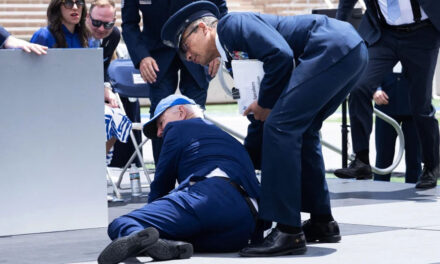
US and Taliban: One Step Closer to a Peace Deal
After nearly a week of talks with the Taliban, US envoy Zalmay Khalilzad said the two sides had reached “agreements in principle” that could lead to a peace deal.
“The Taliban have committed, to our satisfaction, to do what is necessary that would prevent Afghanistan from ever becoming a platform for international terrorist groups or individuals.”
In exchange, the Taliban demand the full withdrawal of all foreign troops.
“There is a lot more work to be done before we can say we have succeeded in our efforts,” continued Khalilzad, “but I believe for the first time I can say that we have made significant progress.”
After speaking with the Taliban in Qatar, Khalilzad traveled to Kabul to meet directly with Afghan President Ashraf Ghani.
“Our commitment is to provide peace and to prevent any possible disaster,” said Ghani in a televised speech on Monday. “There are values that are not disputable, such as national unity, national sovereignty, and territorial integrity.”
When asked about the progress of negotiations in Qatar, President Ghani said the goal of the talks was to “bring the Afghan government and the Taliban into face-to-face discussions and negotiations…then, the larger issues of the US presence and other international issues will be addressed.”
Ghani assured the public their rights would not be infringed upon in order to obtain peace with the Taliban and expressed frustration that talks were moving forward without him. “No Afghan wants foreign troops to remain on their soil for their entire lives, but the current presence is based on a carefully considered assessment,” he said. “That number will be brought down to zero, based on a concrete plan.”
The Taliban, which currently control about 50% of Afghanistan, say they will only talk directly with the Afghan government after the US commits to a full withdrawal.
Trump has already called for the removal of about half of the 14,000 troops stationed there, but Pentagon officials worry the Taliban won’t hold their end of the deal if they leave. Other issues that have yet to be solved include a ceasefire, the exchange of prisoners, and the closing of poppy fields.
—
The war in Afghanistan began in 2001 when a US-led coalition invaded the country following the terror attacks on 9/11. Over the past 17 years, the war has cost the US billions of dollars and more than 2,400 lives.
Earlier this month, President Ghani said more than 45,000 Afghan soldiers and security forces have been killed since 2014.
The progress on peace negotiations follows weeks of intense attacks on Afghan forces despite harsh winter conditions. The number of civilians killed or injured is already up 40% compared to last year.
Editor’s note: America’s real interest in Afghanistan is that it still produces more than 80% of raw opium in the world. What still remains to be seen is whether such a peace treaty will a) aid the rest of the world in eradicating opium in Afghanistan, b) somehow be protected under a peace agreement or c) will never come to pass because the opium traders have the ability to keep the violence going. We saw in Colombia that narcotraffickers have the power and the will to pay insurgents to maintain instability for a very long time.
Without a great deal of effort, the opium money is going to be collected by someone. And, of course, Taliban warlords may find themselves torn between their religious intolerance of drugs and their desire for power and a richer lifestyle.
We have noted before that if mineral resources in certain areas of the country were developed it would more than replace the opium dollars for Afghanistan. But without stability, the entire country will be stuck in its current economic state.


























Peace deal with the talibaN? HUMBUG! I don’t want a SO-CALLED “deal” with them; I want them ANNIHILATED!
.
Richard William Faith
central Florida
If there exists a biological parasite that is specific to the opium poppy, we should sabotage their poppy fields with it FOR ALL TIME.
.
Richard William Faith
central Florida
I don’t believe them for a minute. They’ll get us out and be back at it again